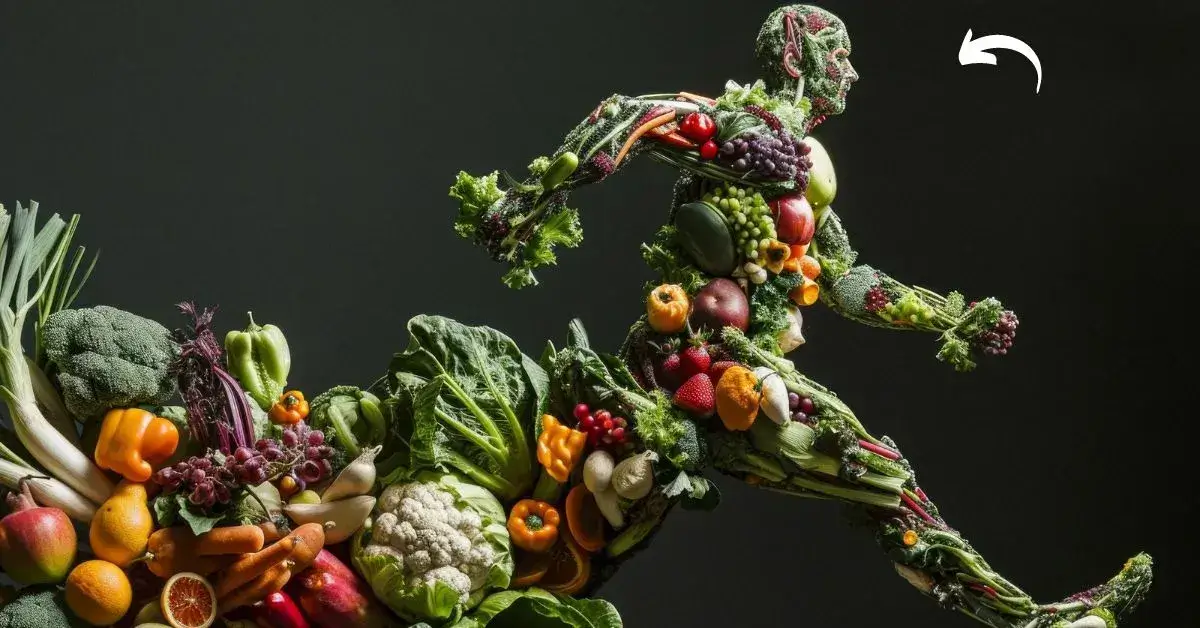Waxy in texture, cholesterol is created by the liver and is acquired through the consumption of animal products such as meat, dairy, and eggs.
A high-cholesterol diet will cause your liver to create less cholesterol; therefore, dietary cholesterol rarely has a significant effect on total cholesterol levels.
On the other hand, consuming a lot of sugar, trans fat, and saturated fat can increase cholesterol.
High levels of “bad” LDL cholesterol, especially when oxidized, have been associated with an increased risk of heart disease, heart attack, and stroke, even though “good” HDL cholesterol may be healthy for you.
This is due to the increased likelihood that oxidized low-density lipoprotein (LDL) may adhere to the arterial walls, forming plaques that block the blood vessels.
Table of Contents
Here are 9 Dietary Suggestions to Help Lower Cholesterol
1. Consume Soluble Fiber-Rich Foods
Apples, citrus fruits, whole grains, lentils, beans, and flax are good sources of soluble fiber.
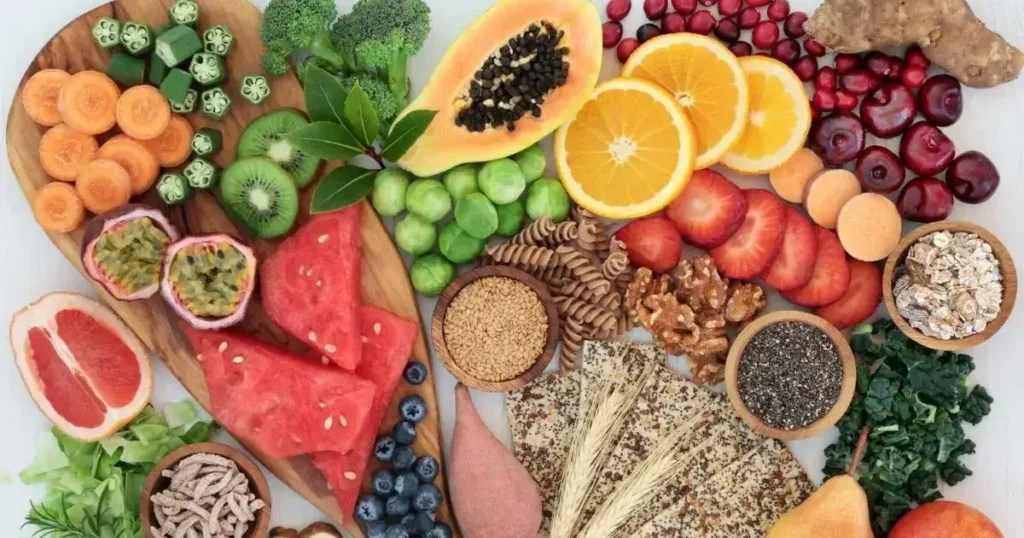
Since soluble fiber cannot be broken down by humans, it passes through the digestive system, absorbing water and solidifying it into a thick paste.
As it travels, soluble fiber absorbs bile, a substance produced by your liver to help digest fats. Eventually, both the fiber and the attached bile are excreted in your stool.
Bile, a fluid secreted by the liver to aid in fat digestion, is absorbed by soluble fiber during its journey. The fiber and associated bile are eventually expelled from your stool.
Since it is the raw material for bile, your liver naturally lowers cholesterol levels by drawing it from your bloodstream when it needs to produce more bile.
It is advised to consume a minimum of 5 to 10 grams of soluble fiber daily to reduce cholesterol.
2. Eating various kinds of Fruits and Veggies
Lowering LDL cholesterol levels is simple and may be achieved by eating fruits and vegetables.
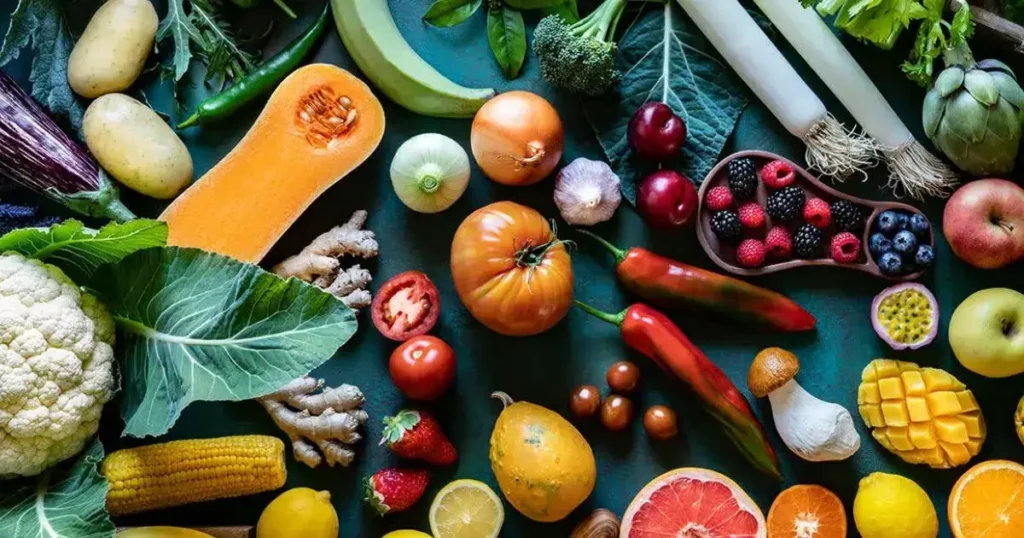
According to studies, those who eat at least four servings of fruits and vegetables a day have LDL cholesterol readings that are around 6% lower than those of those who eat fewer than two servings.
Antioxidants found in abundance in fruits and vegetables also stop LDL from oxidizing and creating plaques in your arteries.
According to research, those who consume the greatest amounts of fruits and vegetables over ten years are 17% less likely to acquire heart disease than those who consume the least amounts.
3. Cooking with Spices and Herbs
Spices and herbs are nutritious powerhouses that are abundant in antioxidants, vitamins, and minerals.
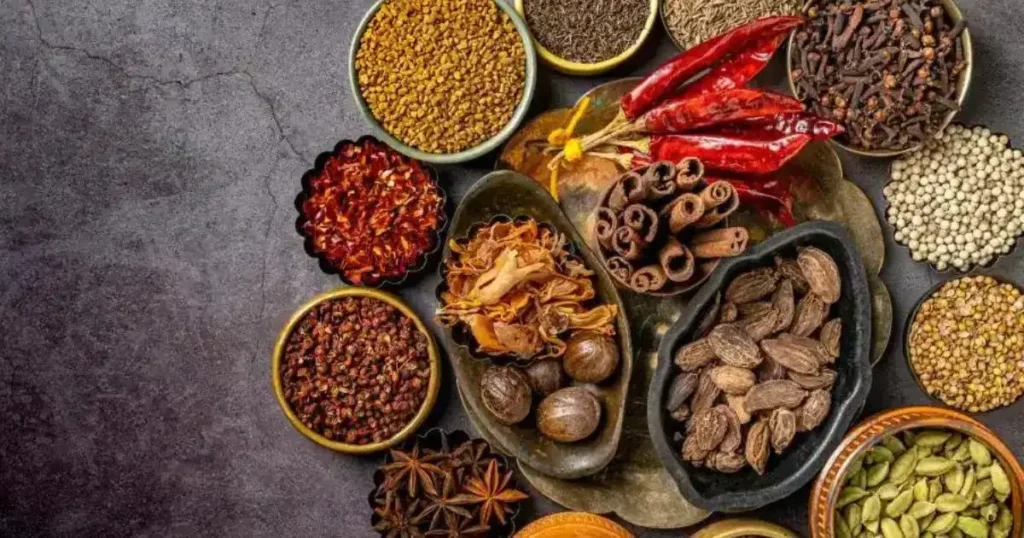
Studies on humans have demonstrated that eating ginger, garlic, and turmeric daily effectively lowers cholesterol.
It takes three months to reduce total cholesterol by 9% with just one clove of garlic eaten every day.
Herbs and spices not only decrease it but also provide antioxidants that stop LDL cholesterol from oxidizing and forming plaque in your arteries.
Among the greatest concentrations of antioxidants are found in dried oregano, sage, mint, thyme, clove, allspice, and cinnamon; fresh herbs include oregano, marjoram, dill, and cilantro.
4. Eat a Range of Polyunsaturated Fats
Food has two primary types of fats: unsaturated Because of their bowed structure and the presence of at least one double bond, unsaturated fats cannot bind together as firmly. They are liquid at normal temperatures because of these qualities.
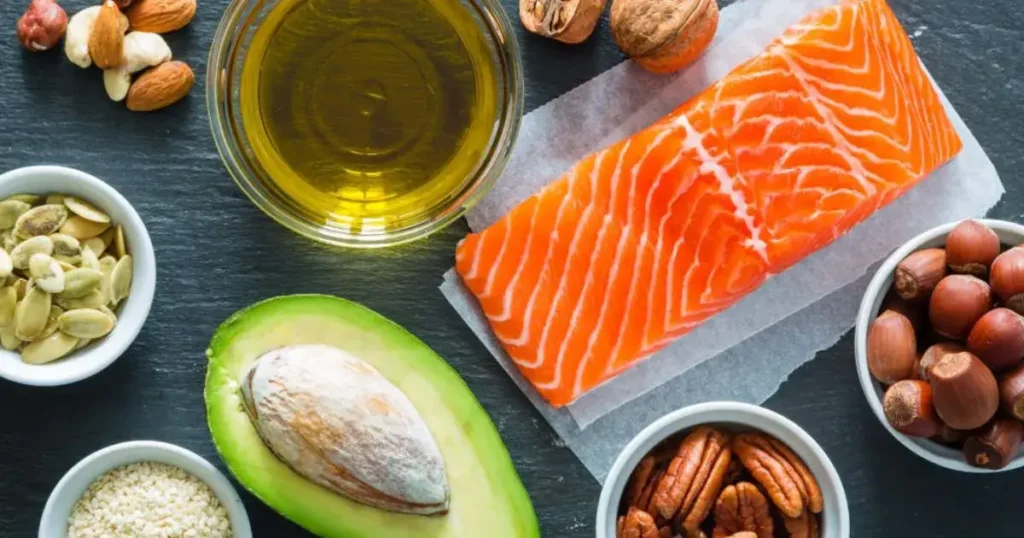
According to research, in just eight weeks, switching to unsaturated fats instead of saturated ones can lower total cholesterol by 9% and “bad” LDL cholesterol by 11%. and saturated.
Long-term research has also shown that individuals with lower it tend to consume more unsaturated fats and less saturated fats.
Consuming foods high in heart-healthy unsaturated fats, such as nuts, avocados, olives, and fatty seafood, is recommended.
5. Stay clear of Artificial Trans Fats
Although trans fats are naturally found in dairy products and red meat, artificial trans fat, which is used in many restaurants and processed meals, is the major source for most individuals.
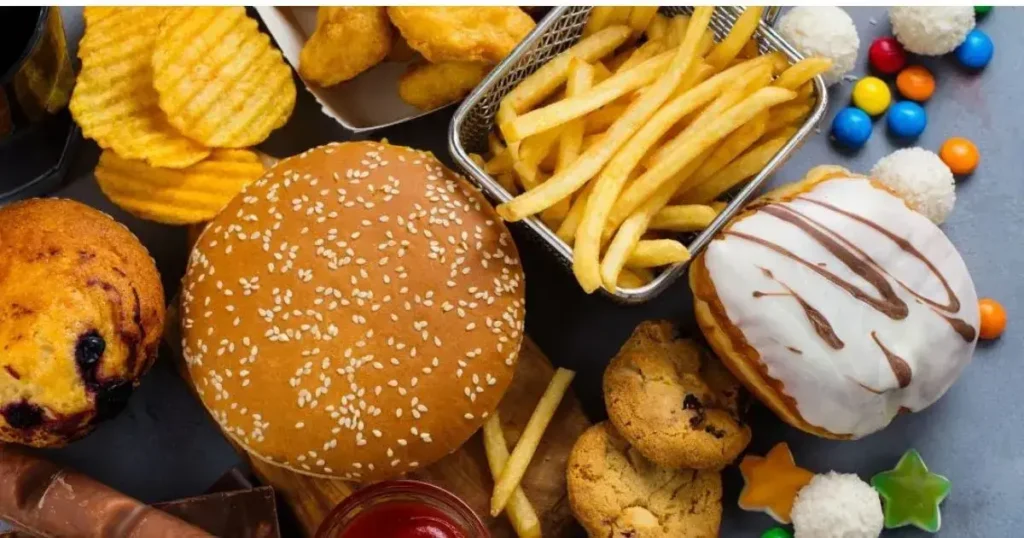
Hydrogenating, or adding hydrogen to unsaturated fats like vegetable oils, causes them to solidify at room temperature and alter, producing artificial trans fats.
Restaurants and food producers have begun using trans fats as a low-cost substitute for natural saturated fats.
However, a thorough analysis of the data indicates that consuming artificial trans fats raises “bad” LDL cholesterol, decreases “good” HDL cholesterol, and is associated with a 23% increased risk of heart disease.
Artificial trans fats are now much easier to avoid because they are no longer allowed to be used in restaurants or in processed foods sold in the United States as of June 2018.
6. Consume Less Added Sugars
According to one study, participants who drank beverages containing high-fructose corn syrup for 25% of their calories had a 17% rise in low-density lipoprotein cholesterol in just 2 weeks.
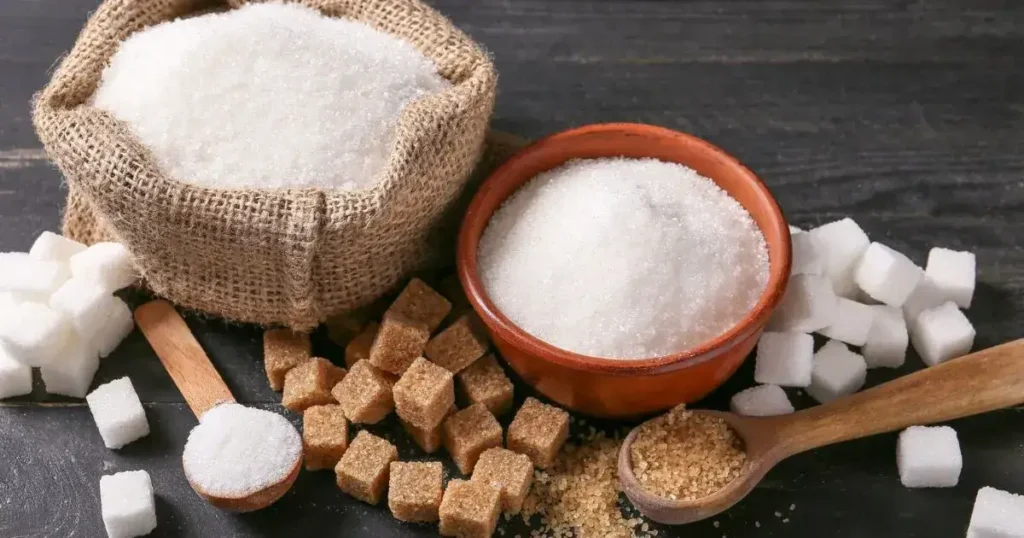
10% of Americans are projected to have taken more than 25% of their daily calories from added sugars between 2005 and 2010.
A 14-year study found that those who got more than 10% of their calories from added sugars had a nearly threefold lower risk of dying from heart disease.
According to the American Heart Association, adults should consume no more added sugar than 150 calories (37.5 grams) per day for males and no more than 100 calories (25 grams) for women and children.
7. Take pleasure in a Mediterranean diet
Mediterranean diets are low in red meat and most dairy products and high in fruits, vegetables, nuts, whole grains, and seafood. Red wine is the most common type of alcohol drunk in moderation with meals.
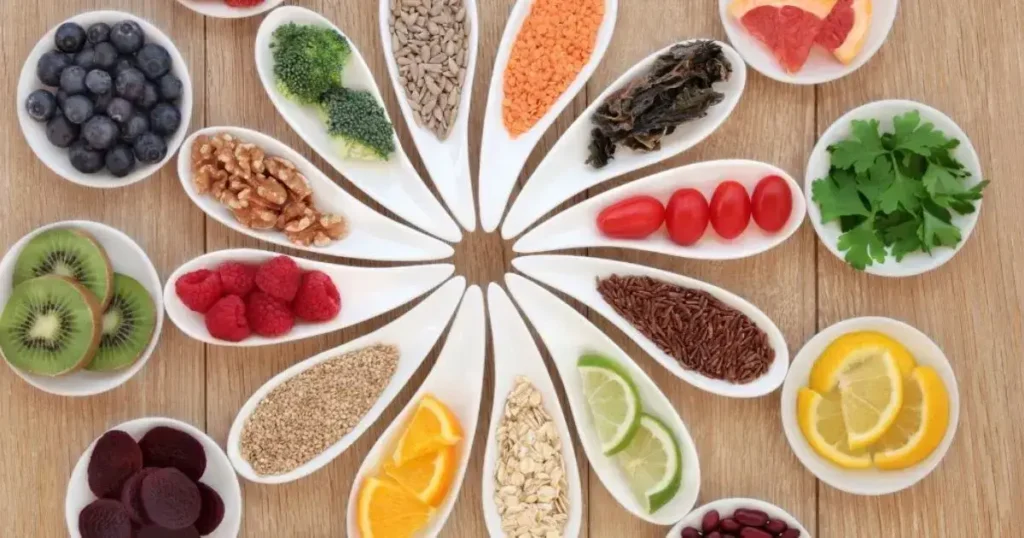
This eating pattern is regarded as being particularly heart-healthy as it incorporates a lot of items that lower cholesterol and stays away from meals that raise it.
Studies have demonstrated that consuming a diet based on the Mediterranean lifestyle for a minimum of three months lowers LDL cholesterol by an average of 8.9mg per deciliter (dL).
When used for at least four years, it also lowers the risk of mortality by up to 47% and the risk of heart disease by up to 52%.
8. Have More Soy
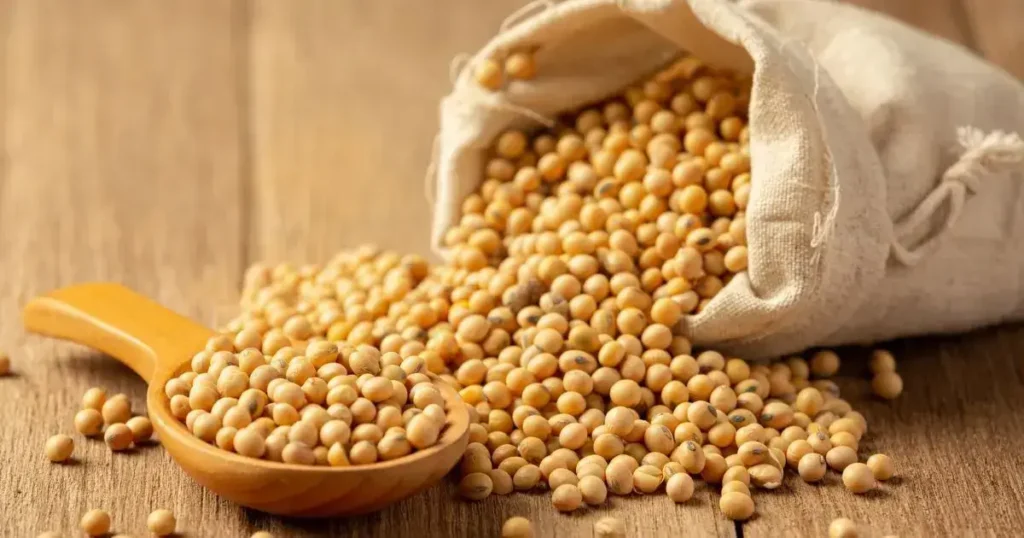
In addition to being high in protein, soybeans also contain plant-based substances called isoflavones, which resemble estrogen in structure.
Soy protein and isoflavones have been shown in studies to have potent cholesterol-lowering properties and can cut the risk of heart disease.
Consuming soy daily for at least a month can lower “bad” LDL cholesterol by around 4 mg/dL and raise “good” HDL cholesterol by 1.4 mg/dL.
9. Have some Green Tea
The Camellia sinensis plant’s leaves are heated and dried to make green tea.
For matcha green tea, the tea leaves can be crushed into a powder and combined with liquid, or they can be steeped in water to form brewed tea.
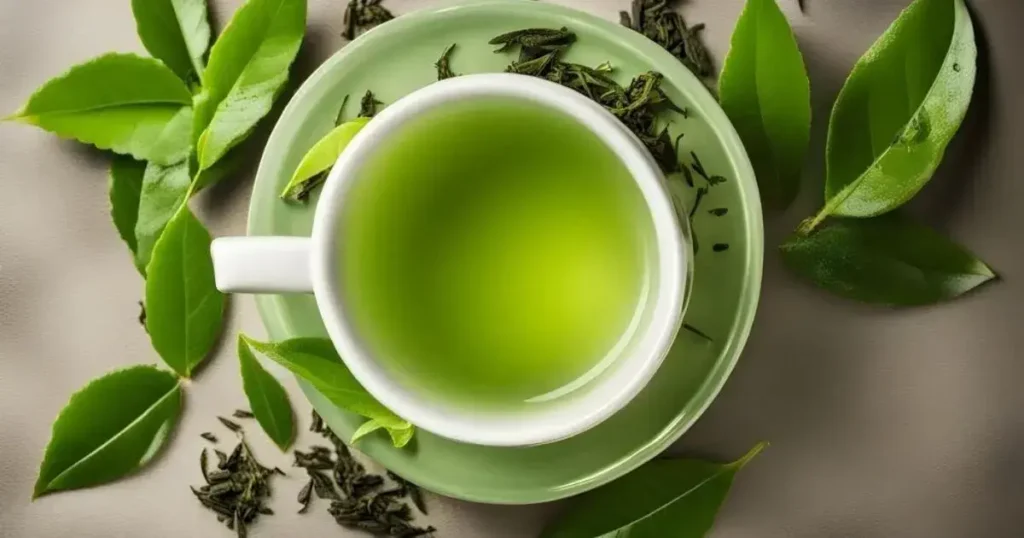
Drinking green tea every day for at least two weeks reduces total cholesterol by around 7 mg/dL and “bad” LDL cholesterol by approximately 2 mg/dL, according to an analysis of 14 studies.
Green tea helps reduce it by decreasing the liver’s creation of LDL and improving the bloodstream’s elimination of it, according to tests on animals.
The best protection against heart disease comes from consuming four or more cups daily, but even one cup can lower your chance of a heart attack by 20%.
The Final Words
A higher risk of heart disease has been associated with elevated levels of “bad” LDL cholesterol, particularly tiny, densely oxidized LDL.
Dietary modifications can help lower cholesterol levels and lessen these risks. Examples include eating more fruits and vegetables, cooking with herbs and spices, ingesting soluble fiber, and consuming a lot of unsaturated fats.
To maintain it within healthy limits, stay away from substances like trans fats and added sweets that raise LDL cholesterol.
L-carnitine, green tea, soy, niacin, psyllium husk, and other foods and supplements can also help decrease cholesterol.
Follow us for updates. more about reducing cholesterol with your diet reach out to OverNexus.

